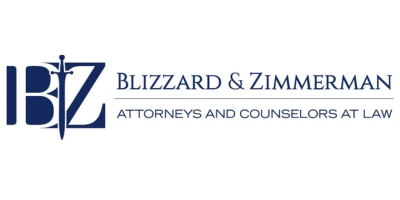Knowing about and understanding the “two prongs” of Ineffective Assistance is very important to your case.
Today I wanted to talk to you about Ineffective Assistance of Counsel and how you can use that ground in a 110.7 Writ of Habeas Corpus application on direct appeal or in a federal writ.
The Things You Need to Prove
In your direct appeal, using Ineffective Assistance of Counsel is going to be tough because the Court of Appeals is only going to go base its choices off of the records before.
The one exception to this is if you had a motion for a new trial where you told the court that your attorney was ineffective, that you did not have an affidavit, that you had a hearing and at that hearing, that attorney was questioned on the grounds of Ineffective Assistance of Counsel.
This means that a Court of Appeal is going to really look at that case unless the error is so obvious that it can stand on its own in the record.
There are also certain things you need to present to prove Ineffective Assistance of Counsel through the 11.07 Writ process.
First of all the courts are going to presume that the council acted within the scope of their professional duties. They will assume that they acted in accordance with proper trial strategy, and so you have to show by a preponderance of the evidence that:
- They made an unprofessional mistake that was not based on sound trial strategy.
- There was an error that occurred in that representation that caused you some harm.
Examples of Mistakes and Errors and how to Prove Them
However, you may be wondering how this all works.
The first prong is that they made some unprofessional mistake.
I have written before in other blog posts about what those kinds of mistakes may be, so you can look at those if you want more detail. However, The general idea is that it has to be a serious mistake and not just a simple error.
For example, saying that your case could have gone a little bit better one way or another would just be a simple error. It has to be a significant error, and the court is also going to look at the totality of the circumstances.
It may be that there was an error in one aspect of the representation but the other aspects of the representation were so well done or it was used so well by that attorney that the error effectively did not harm you.
Occasionally, however, a single error can be egregious enough to result in prejudicial harm.
When we go to conferences and listen to judges and the Texas Court of Criminal Appeal Writ attorneys that are helping these judges, what they talk about is that the most important thing for an Ineffective Assistance of Counsel claim is the prejudice prong.
The prejudice prong is the fact that you have to show that you have been harmed somehow and that your trial would have come out differently, but for the errors of your trial attorney.
For example in a plea bargain case, you could have a situation where you took a plea and you were advised incorrectly on parole or you were advised that you couldn’t get probation when you really could.
The difference has to be that, but for that bad advice, you would have insisted on going to trial because that would be a different procedural result than you have pled guilty.
In the trial context, it means that if you were to go to trial and your attorney made some mistakes in the trial, those mistakes would have to have been serious enough in the guilt-innocence phrase to mean that the result of your trial likely would have been different. If you were found guilty, you likely would have not been found guilty, or you would have been found guilty and maybe in a lesser included offense or something like that, had your attorney done the job correctly.
This also applies in the sentencing phase of a trial, or if you did an open plea and you were subsequently sentenced by a Judge or jury, then that is going to be investigated.
- Did it change the way that the jury or judge looked at the case?
- Did they decide that you were more culpable or you deserved a harsher sentence because of the error made by your trial attorney?
If so, then that can be a ground to show that prejudice occurred in your case.
These mistakes and errors are effectively what you’re going to want to look for, and it’s easy.
There are lots of lawyers who make mistakes, so it’s easy to point out a mistake but you need to point out how that mistake was prejudicial to you.
It’s often in the intricate details, complex legal research, and factual research that these arguments develop for the totality of the circumstances to show that it was a number of different errors that contributed to Ineffective Assistance of Counsel.
Think about that as you’re thinking about your grounds on 11.07 reapplication and we’ll see out there.
About The Attorney

Jacob Blizzard is board certified in both criminal law and criminal appellate law.
He regularly practices in the areas of state and federal criminal defense, criminal appeals, post conviction writs of habeas corpus.
In Texas, there are more than 100,000 attorneys licensed to practice, but only 7,450 are board certified.
In the entire State of Texas, as of the 2019 certification year, there were only 87 attorneys board certified in both criminal law and criminal appellate law, making Mr. Blizzard one of 0.087% of attorneys in Texas to hold both of those certifications.

